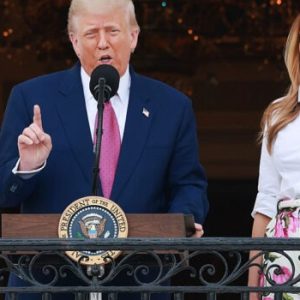A forensic pathologist is under intense scrutiny after allegedly exploiting his position in a case that has sent shockwaves through both the medical and legal communities. The incident has sparked national outrage, fueled by concerns about ethics, professional responsibility, and the reliability of forensic evidence in the justice system.
Trusted Role in Jeopardy
Forensic pathologists are often the unsung heroes in criminal investigations, tasked with determining causes of death and uncovering critical facts in suspicious cases. Their work can make or break legal proceedings. That’s what makes this case so alarming: a professional in such a trusted position is now accused of crossing ethical and legal lines—possibly for personal gain.
What We Know So Far
While full details remain under wraps pending an official investigation, sources say the doctor—whose name is being withheld for now—may have altered forensic findings or mishandled evidence in ways that benefitted him. He likely believed his actions would go unnoticed. Unbeknownst to him, however, internal oversight or a whistleblower had already flagged suspicious activity, prompting a deeper probe.
Whether his actions were financially motivated, tied to a broader scheme, or simply the result of gross negligence is still unclear. Allegations range from falsifying reports to abusing his access to sensitive materials. Investigators are now working to determine the scope of the misconduct.
How It Came to Light
Cases like this often surface thanks to sharp-eyed colleagues, inconsistencies in documentation, or routine audits. Though the exact mechanism hasn’t been confirmed, it’s believed that red flags led to a closer look at his work, eventually exposing a pattern of unethical behavior.
Public Outrage and Legal Fallout
News of the scandal spread quickly, igniting a firestorm on social media. Many Americans are expressing deep concern over the potential implications—not just for individual cases, but for the credibility of forensic science as a whole. Trust in the justice system relies heavily on the accuracy and integrity of forensic evidence, and this breach may lead to widespread reevaluation.
Legal experts warn that, if the allegations hold up, the doctor could face criminal prosecution, civil lawsuits, and the permanent loss of his medical license. More troubling still, any criminal cases that relied on his forensic testimony could now be called into question—potentially leading to overturned convictions or new trials.
A Call for Reform
This incident has renewed calls for stronger oversight in forensic medicine. Critics argue that the field lacks the rigorous checks and balances found in other areas of healthcare and law. Advocates are pushing for reforms, including mandatory peer reviews, stricter audit protocols, and more transparency in forensic investigations.
A Teachable Moment
The scandal is a stark reminder of how vital ethics and accountability are in forensic work. When a forensic professional strays from objectivity, the ripple effects can be devastating—not just for victims and their families, but for public trust in the entire legal system.
It also highlights the essential role of whistleblowers and internal controls in uncovering misconduct. Without those safety nets, unethical behavior can go unchecked for years.
What Happens Next
As the investigation unfolds, authorities are expected to thoroughly review the doctor’s past cases and ensure justice is served for anyone affected. Meanwhile, the forensic and medical communities face a critical moment to reflect, reform, and rebuild trust.
This case isn’t just about one bad actor—it’s a wake-up call. Maintaining integrity in forensic science is not optional. It’s the foundation of justice.





